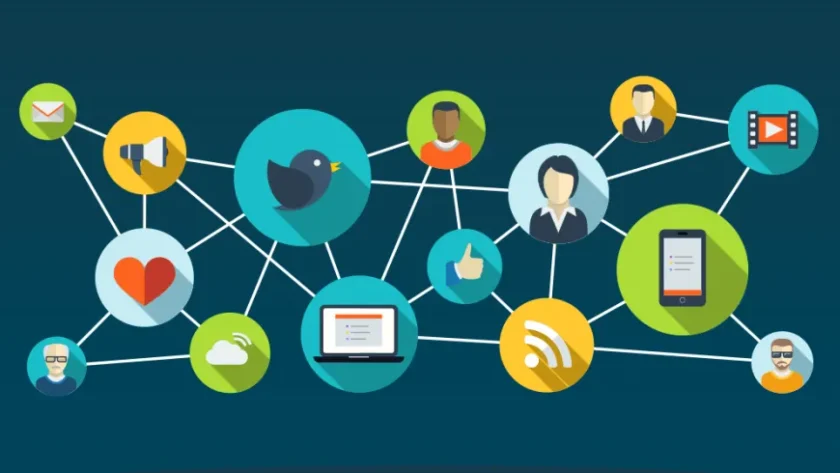In today’s digital world, networking no longer requires in-person interactions or attending events. With the advent of social media, virtual events, and professional platforms like LinkedIn, online networking has become a powerful tool for building connections, fostering relationships, and growing both personal and professional brands. However, with so many platforms and tools available, it’s crucial to understand how to network effectively online.
In this article, we will explore the best strategies for online networking that can help you make meaningful connections, strengthen your professional relationships, and expand your opportunities.
1. Why is Online Networking Important?
Online networking is crucial in a world where remote work and virtual communication are increasingly the norm. It allows individuals to reach and connect with others globally, regardless of physical distance. Networking online offers several advantages, including:
- Wider Reach: You can connect with people from around the world, opening up opportunities that wouldn’t be available in traditional, in-person networking.
- Accessibility: Online platforms make it easy to engage with professionals from various fields at your convenience.
- Cost-Effectiveness: Compared to in-person networking events, online networking is typically free or very low cost, making it a more affordable option for many.
Whether you’re looking to grow your career, find business partners, or establish yourself as an expert in your field, online networking provides an accessible and efficient way to do so.
2. Strategies for Effective Online Networking
2.1 Build a Strong Online Presence
Before diving into online networking, it’s essential to establish a strong and professional online presence. This will make you more attractive to potential connections and allow you to stand out in a sea of professionals.
Key Steps to Build Your Online Presence:
- Complete Your Profile: Whether you’re on LinkedIn, Twitter, or any other professional platform, ensure that your profile is complete with a professional photo, a compelling bio, and details about your experience and skills.
- Create a Personal Brand: Define what you stand for and how you want to be perceived online. Your personal brand should reflect your professional goals, values, and expertise.
- Consistent Activity: Stay active on the platforms you use by regularly sharing updates, posting articles, and engaging with others’ content. This shows that you’re an engaged and proactive professional.
A strong online presence builds trust and credibility, making it easier to form valuable relationships with others.
2.2 Leverage LinkedIn for Professional Networking
LinkedIn is the go-to platform for professional networking. It allows you to connect with people in your industry, discover opportunities, and build a professional reputation. To effectively use LinkedIn for networking, consider the following strategies:
Key Tips for LinkedIn Networking:
- Personalize Connection Requests: Instead of sending the default connection request, take a moment to personalize your message. Mention why you’d like to connect, how you found their profile, or something specific you admire about their work.
- Join and Participate in Groups: LinkedIn has a wide range of groups where professionals discuss industry trends, share job postings, and exchange ideas. Being active in these groups is a great way to engage with like-minded individuals.
- Post Regularly: Share your thoughts on industry news, personal achievements, and insights. Posting valuable content positions you as an expert in your field and attracts engagement from others.
- Engage with Content: Like, comment, and share posts from your connections and other influencers in your industry. Meaningful engagement helps you stay visible and opens up opportunities for deeper connections.
LinkedIn offers an unparalleled platform for cultivating and nurturing professional relationships. Active engagement can make you visible to recruiters, industry leaders, and peers alike.
2.3 Join Online Communities and Forums
In addition to LinkedIn, there are numerous niche online communities and forums where professionals gather to exchange ideas and advice. These communities can be industry-specific or focused on broader topics such as entrepreneurship, technology, marketing, etc.
Examples of Online Communities:
- Reddit: Subreddits like r/entrepreneur, r/marketing, or r/tech allow professionals to connect, share experiences, and ask questions.
- Facebook Groups: Many professionals and business owners create private Facebook groups to foster meaningful discussions and networking opportunities.
- Specialized Forums: Platforms like Stack Overflow (for developers) or Behance (for creatives) offer forums and networking opportunities within their specific fields.
When engaging in online communities:
- Offer Value: Answer questions, share knowledge, and offer insights. By being helpful and generous, you’ll earn the respect and attention of others.
- Be Consistent: Join discussions regularly to stay visible and build a reputation within the community.
Networking in these communities allows you to connect with individuals who share similar interests, knowledge, and career goals.
2.4 Engage in Virtual Events and Webinars
Attending virtual events and webinars is an excellent way to network online. With most events being hosted virtually now, they have become more accessible, making it easier than ever to attend conferences, workshops, or networking events without leaving home.
Tips for Networking at Virtual Events:
- Research the Event and Speakers: Before attending, get to know the speakers and participants. Identify people you’d like to connect with.
- Participate Actively: Engage in discussions, ask thoughtful questions during Q&A sessions, and introduce yourself in the event’s chat room.
- Follow Up: After the event, reach out to people you connected with. Refer to something specific you discussed during the event to make your message personal and memorable.
Virtual events create opportunities for learning and connecting with experts and peers in your field, while also allowing you to grow your network.
2.5 Provide Value to Others
Successful networking isn’t just about what you can gain—it’s also about what you can offer. Building strong relationships requires giving as much as you receive, so always think about how you can help others.
Ways to Provide Value:
- Share Useful Content: Share articles, blog posts, or videos that could be beneficial to others in your network.
- Offer Introductions: If you meet someone who could benefit from connecting with someone else in your network, facilitate an introduction.
- Support Others’ Success: Congratulate your connections on their achievements, share their content, or offer advice when they ask for help.
By being generous with your time, knowledge, and resources, you position yourself as a valuable connection, making others more likely to reciprocate and help you when needed.
2.6 Personalize Your Communication
When networking online, personalization is key. Generic messages are less likely to receive a response. Instead, take the time to craft personalized, thoughtful messages when reaching out to new connections.
Personalization Tips:
- Mention Shared Interests: Reference a common connection, mutual interest, or something specific about their profile to show that you’ve taken the time to learn more about them.
- Be Clear About Your Intentions: Let the person know why you want to connect. Whether it’s for career advice, collaboration, or simply expanding your network, being clear about your goals fosters trust.
- Respect Their Time: Be concise and respectful in your messages. Recognize that people are busy, so make sure your communication is clear and to the point.
Personalized communication demonstrates respect and consideration, increasing the likelihood of building a strong, ongoing connection.
2.7 Follow Up Regularly
Consistency is key in online networking. After the initial connection, make sure to follow up and continue engaging with your contacts over time. This helps keep the relationship active and prevents it from fading into obscurity.
Effective Follow-Up Strategies:
- Check In Periodically: Send occasional messages to see how things are going, share relevant updates, or congratulate them on milestones.
- Engage with Their Content: Like or comment on their posts, share articles, or offer insights on topics they are discussing.
- Send Value-Added Messages: When following up, include something useful, such as an article, an event invite, or an introduction to someone in your network.
Regular follow-up helps to nurture relationships and keeps your network strong and valuable.
Conclusion
Effective online networking is about building meaningful relationships, sharing valuable information, and being proactive in engaging with others. By following the strategies outlined in this article—such as building a strong online presence, leveraging LinkedIn, participating in online communities, engaging in virtual events, and providing value to others—you can maximize the power of online networking to further your career, grow your business, and expand your opportunities.
In today’s digital world, the ability to network online is more important than ever. By taking the time to nurture your online connections, you can create a strong, supportive network that will help you achieve both personal and professional success.




